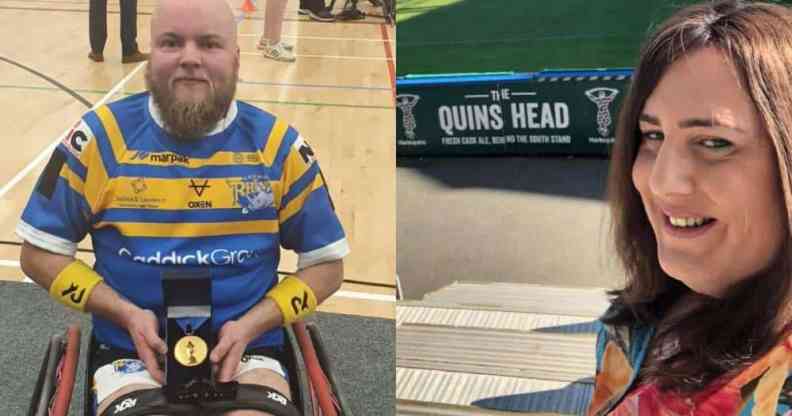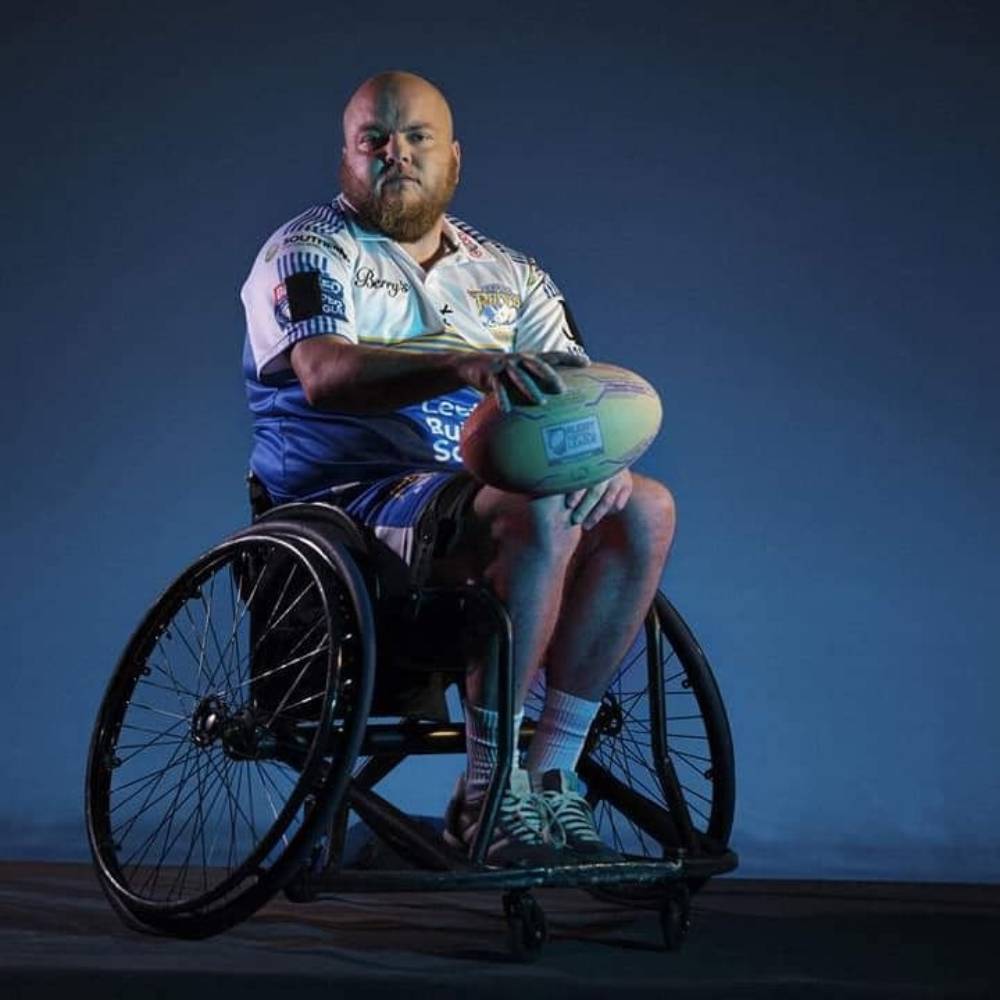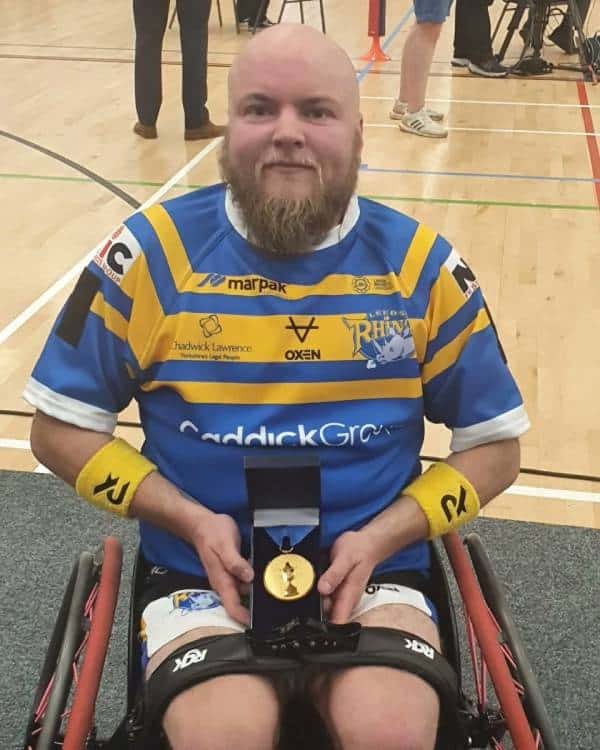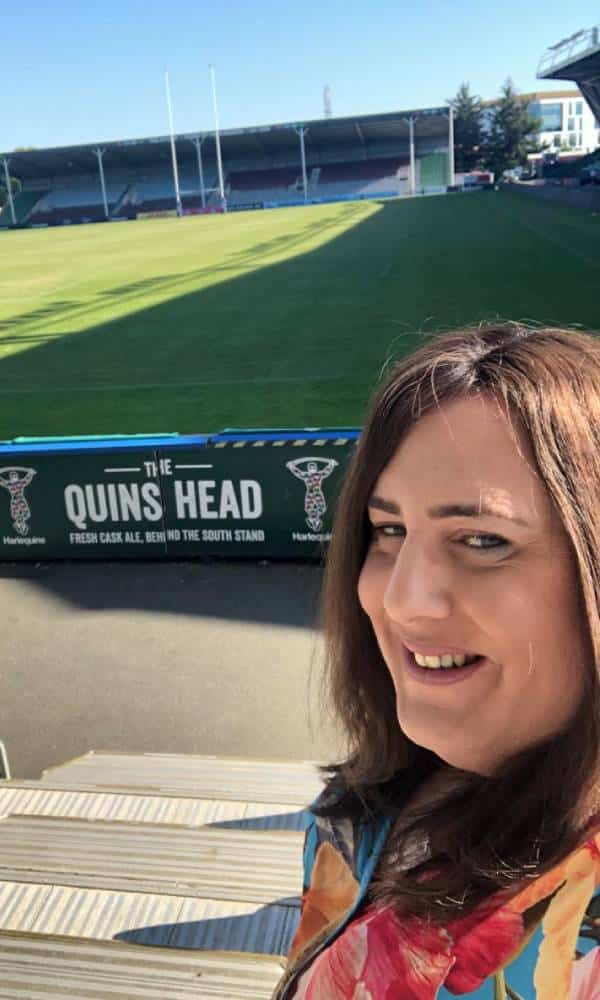Trans rugby ban vote paints ‘frightening’ future for players and fans: ‘A signal we’re not welcome’

Verity Smith (L) and Emily Hamilton condemned the Rugby Football Union’s proposed trans ban. (Provided)
The Rugby Football Union’s (RFU) proposed ban on trans women is a “kick in the teeth” for trans players and fans, making them feel they’re no longer “welcome” in rugby.
The RFU will vote on an outright ban on trans women playing rugby union on Friday (29 July). The national governing body claimed the ban is a “precautionary approach” to “ensure fair competition and safety of all competitors”.
Under the proposal, rans men would be able to play “if they provide their written consent and a risk assessment is carried out”.
Verity Smith, sports inclusion manager for trans youth charity Mermaids, played elite women’s rugby for several years and now plays in the wheelchair rugby UK superleague.
He felt like he’d been “kicked in the teeth” when he learned that the RFU – which previously had a trans-inclusive stance – would consider such proposals.
“I was just sick to the stomach,” he tells PinkNews. “It’s a sport that I’ve played for 26 years – that I had to hide half my life for – because I couldn’t come out.”
He continues: “I got told if I came out as trans, I’d lose my place in the premiership. I even got married to a woman to try and fit in as a lesbian.
“I’m still playing sport and stuff, and it was a kick in the teeth.
“It felt like we’re second-class citizens and we’re not worthy to play the same game as anybody else.”

Verity Smith says the RFU’s proposed trans ban made him feel like trans people aren’t “worthy to play” rugby. (Provided)
The RFU singling out trans women is an “absolutely horrendous” move, Smith says, adding that they represent a tiny minority of the approximately “37,000 women that play union in England”.
Smith notes that there have been “no injuries” linked to trans players in rugby – beyond his own life-changing experience on the pitch.
“I’m the only person that’s been injured as a trans man on a women’s team, playing in a women’s game,” he says.
“I’m in a wheelchair for the rest of my life because a 5’3” woman tackled me and crushed my spinal cord.”
Smith firmly believes the proposed ban is about “policing women’s bodies”. It also treats trans men as “inferior” by making them sign a waiver when “no other man has to do that”, he adds.
Smith adds there is “no science out there on trans people in a contact sport” and that there are only scant studies on the impact of testosterone on sports performance.
“Trans women have been told they’re a danger, and they’re bigger and stronger without any proper science,” he says.
“All the science is on cis men and cis women, and only bits of science that they have done have been on trans people without a control group.”

Verity Smith says trans sports bans have a devastating impact on young people. (Provided)
Through his work, Smith has seen how such attacks are impacting young people who just want to know “they’re going to be OK”.
“I’ve heard a 10-year-old saying: ‘Mommy, this is why I’m not supposed to be here’,” he says. “I’ve had a 13-year-old say: ‘How am I supposed to live when the people I look up to hate me,'” he says.
Sport “means the world” to trans youth, Smith explains, and gives them “so many skills they can take into adult life with”.
For many adults, he says rugby has been a “home” and a “family” that they can cling to in the toughest of times.
‘Trans people are not strangers to losing family’
Emily Hamilton – a diehard rugby fan and co-chair of LGBTQ+ Harlequins fan group Quins Pride – joined the “rugby family” when she was six. This coincided with her also working out “something was very different” about her identity.
The proposed ban is particularly hurtful for those who have found community in rugby, she explains.
“Trans people are not strangers to losing family when they transition, but I never thought the rugby family would be the one saying, ‘You’re not welcome here’,” Hamilton tells PinkNews.
Since the measure was announced, Hamilton has received “awful” abuse on social media for speaking out against it – she says the RFU’s “cack-handed” approach has enabled bigots.
Hamilton says the timing of the proposed ban is “not coincidental”, and comes as “part of a broader assault on the ability of trans people – trans women in particular – to live and enjoy their lives”.
“This is not something that’s been prompted by the RFU looking at accident rates or a glut of trans women suddenly taking places in elite rugby because they aren’t any,” she says.
“It’s not prompted by facts or by issue but by, what I suspect, is a well organised and well-funded campaign from the usual suspects in the background.”

Emily Hamilton, co-chair of Quins Pride, never thought the RFU would say she is “not welcome” in the sport. (Provided)
The RFU’s claims that the recommended ban is based on science are “not grounded in fact”, Hamilton argues.
In fact, she says, it’s “about cherry-picked or half complete studies of athletic performance” – none of which “actually have a meaningful cohort of trans people as opposed to cisgender people”.
“On that basis, it does start to fall into the camp of somebody’s kicked up a fuss, and we’re going along with it,” Hamilton says. “That’s not the game I thought I’ve been a part of for the best part of 40 years.”
Hamilton is gutted that the RFU has been “pulled into this appalling culture war” when rugby has always been a “respite” away from the “abuse”, “segregation” and “exclusion” many LGBTQ+ people endure.
“It’s a place where you can be you and be amongst friends and family, and this is a move to take that away,” she says. “That’s just disgraceful.”
Hamilton says it was “frankly offensive” for the RFU to tell trans women that they aren’t “welcome in our game” but could “stick around and make sure other people get to play”.
The banning of trans women playing any level of rugby Union is part of a broader attack on people living their lives – it’s not grounded in science but part of a concerted effort of bigotry. https://t.co/RwIE7rCKaC
— QuinsPride (@QuinsPride) July 27, 2022
She says the proposed ban could have a “knock-on effect” for LGBTQ+ fans, acting as “signal to the entire community” that they are “not welcome”.
But the “most frightening thing” for her is that she could be walking into a hostile environment when the new rugby season starts.
“I’m going to be going back to grounds where people will have spent a summer potentially being told how dangerous people like me are, and we’re going to look like bad people because we stood up against that.”
Multiple rugby football clubs, coaches, players, fans and LGBTQ+ and sporting organisations have denounced the proposed trans rugby ban. Many will gather outside the RFU’s headquarters on Friday in Twickenham to protest against the hateful measure.

